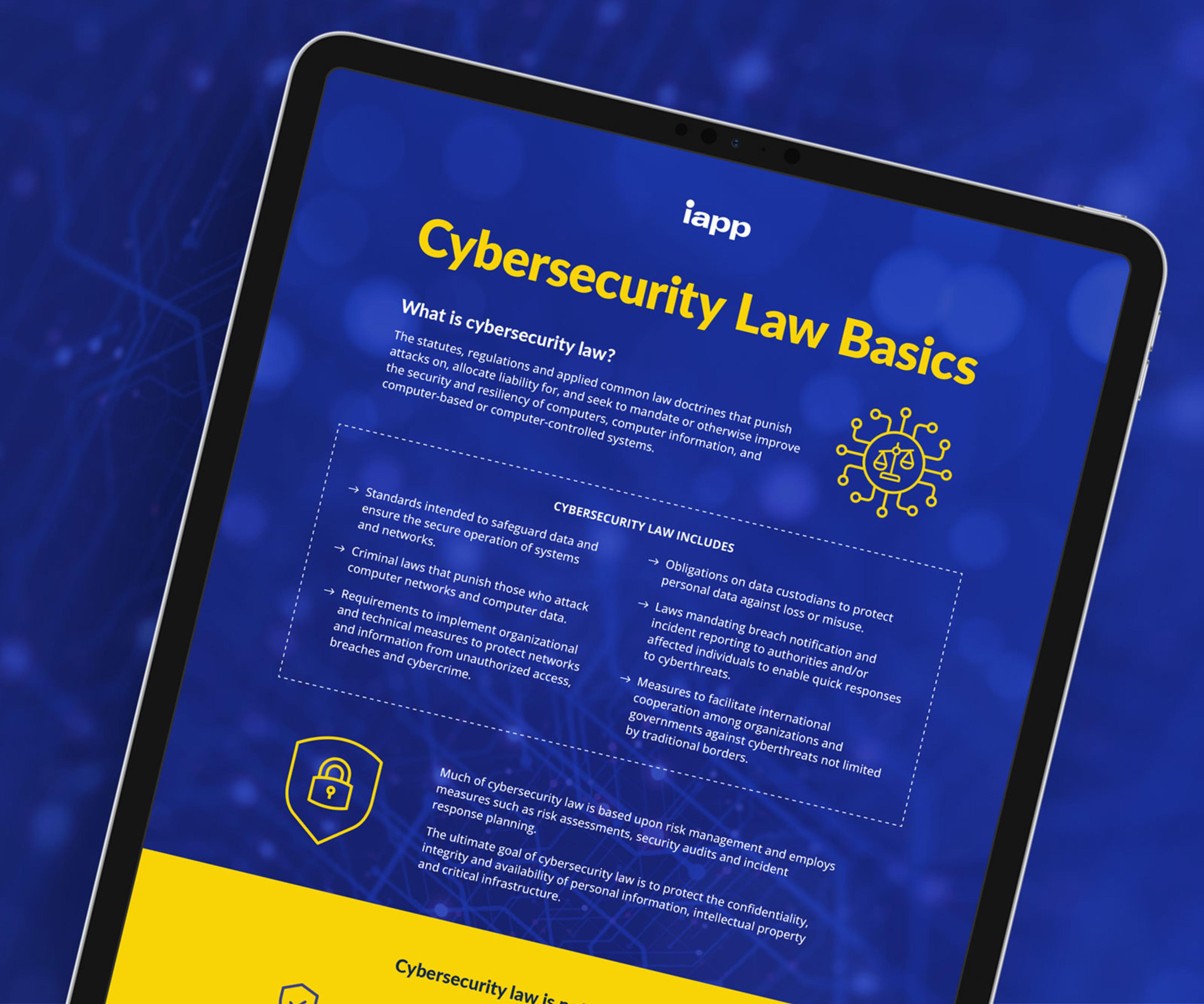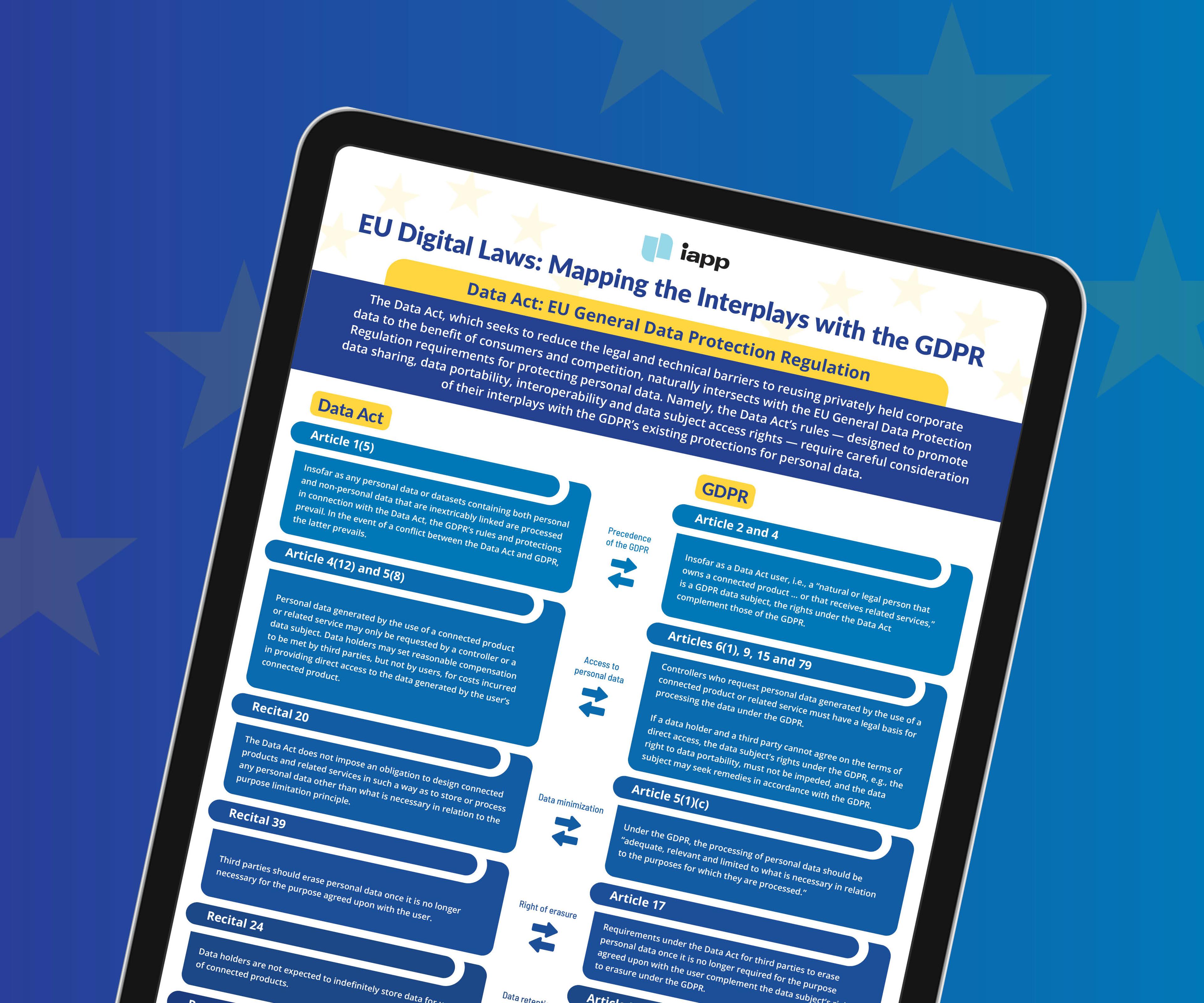INFOGRAPHIC
Cybersecurity Law Basics

This resource provides an overview on the basics of cybersecurity law, including definitions, as well as information on the sectors it applies to and the significant laws and regulations that impact it.

Published:
Contributors:
Jim Dempsey
Lecturer, UC Berkeley Law; Managing Director, Cybersecurity Law Center
IAPP
Cheryl Saniuk-Heinig
CIPP/E, CIPP/US, CIPM
Former research and insights analyst, IAPP
This resource provides an overview on the basics of cybersecurity law, including definitions, as well as information on the sectors it applies to and the significant laws and regulations that impact it.

This content is eligible for Continuing Professional Education credits. Please self-submit according to CPE policy guidelines.
Submit for CPEs